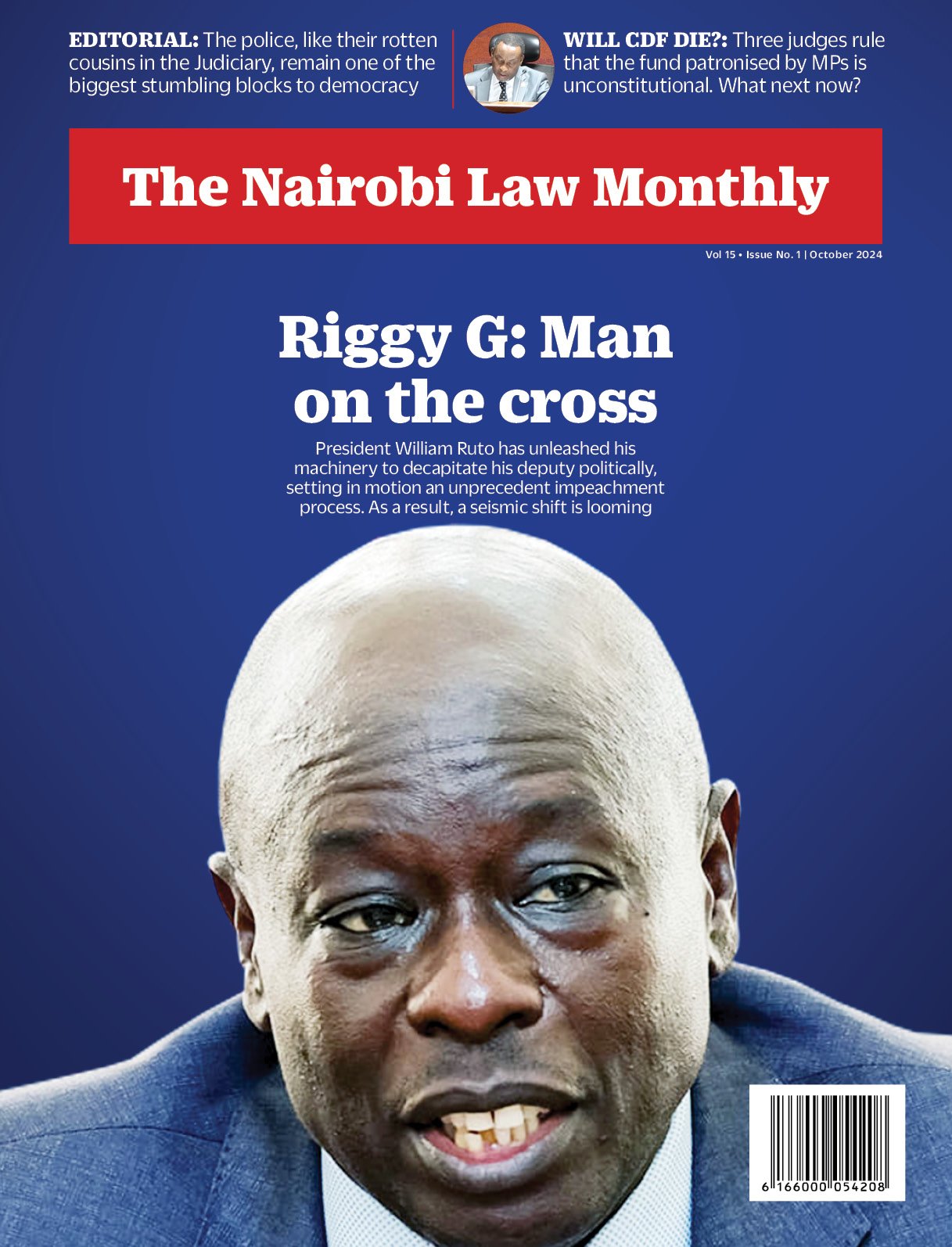By Okong’o Mishael Otieno
The death sentence is grounded in the Penal Code and the repealed constitution. Scholars and legal actors have often held that the right to life isn’t absolute, as was held in Republic v Ruth Wanjiku Kamande [2018] eKLR and Republic v Joseph Malele Mutiso [2018] eKLR. The Constitution of Kenya 2010 provoked legal debate as to whether or not the mandatory death sentence flies in the face of Chapter 4 on the fundamental human rights.
The mandatory death penalty was a law generally bequeathed on all former British colonies, as the penalty of murder under Common Law. But the Supreme has rightly understood the Constitution as transformative, meant to safeguard and uphold human rights. Francis Muruatetu and Wilson Thirimbu Mwangi, in Francis Karioko Muruatetu & another v Republic & 5 others [2016] eKLR, the petitioners asked the Supreme Court to declare the death penalty unconstitutional. It did.
Section 204 of the Penal Code states that any person found guilty of murder, robbery with violence, treason and other capital offences shall be sentenced to death by hanging, but Justice Njoki Ndung’u’s considered opinion was that “the section is out of sync and cannot stand as it is inconsistent with the Constitution”.
The court made the landmark ruling on the petition by two death row convicts Muruatetu and Thirimbu, and sent the petitioners back to the High Court for another hearing and sentencing. The Court also directed the Attorney General, the Director of Public Prosecutions and other agencies to prepare a detailed professional view of cases regarding sentencing. It further ordered that the judgement be placed before the National Assembly Speaker for amendment.
While the Supreme Court ruled that any court dealing with capital offences ought to be guided by judicial discretion when delivering judgments on capital offences, the Court of Appeal had unanimously held that mandatory death sentences are unconstitutional as they violate the right to life, and inflict inhuman punishment.
In the case of Mutiso (supra), the Court of Appeal determined that the mandatory death penalty for murder violates constitutional protections against arbitrary and inhuman treatment. Considering an array of foreign and international jurisprudence for similar jurisdictions, the Court determined that the mandatory death penalty for murder is antithetical to constitutional provisions on protection against inhumane or degrading punishment and fair trial.
In the case of Joseph Njuguna & 2 others v. the Republic, the same Appeal court upheld the mandatory death penalty for armed robbery, reasoning that whether or not the mandatory death penalty is constitutional is a matter for the legislature. It also held that the mandatory death penalty did not constitute cruel, inhuman and degrading punishment because it is not applied for sadistic purposes. These conflicting decisions was presumably resolved by the verdict of the apex court in Muruatetu.
The Supreme Court directed that judges have discretion and will no longer be required to impose the death sentence for murder or armed robbery. This landmark judgement is a significant step towards complete abolition of this ‘cruel and inhumane’ punishment.
It is my hope that relevant agencies, including the National Assembly and the office of the Attorney General, take legal steps to abolish the death penalty fully. In the issue of the compulsory death sentence, the job of deciding the sentence has been taken away from the courts by Parliament. The issues of the mandatory death sentence, along with the contradictory rulings passed by the court of Appeal, had created legal confusion that added to the agony of those on death row.
The judgment means that new sentencing procedures must now be adopted for criminal proceedings. For the first time, judges will have discretion over whether the death penalty should be imposed, taking into account all mitigating factors such as the mental health of the offender, the circumstances of their offence and good character evidence to ensure commensurate sentences.
While the decision by the Supreme Court is binding to all courts below it, it is important to note that the death sentence still holds legally; it is just not mandatory. (

